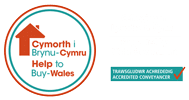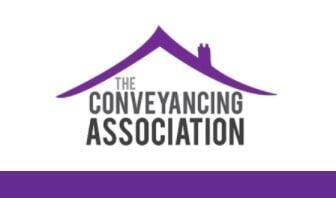When you come to buy a home, one of the things you may be surprised about is the number of questions you have to answer about where the money is coming from to purchase the property. Your conveyancer isn’t being nosey. It’s a legal requirement that they check this, to comply with anti-money laundering rules.
What is money laundering?
Money laundering is the term used for the way criminals process money they have obtained through their illegal activities to make it appear legitimate. Anti-money laundering, as you might expect, refers to methods that are used to identify where money laundering might be taking place.
Without the checks that are in place in the conveyancing process to ensure money safety, it would be relatively straightforward for a criminal organisation or individual to channel money into buying property using different banking systems. Once the property is sold, the money appears ‘clean’ and can re-enter circulation, no questions asked. The criminals get away with it; and, perhaps more fundamentally, where money laundering goes unchecked, people lose confidence in financial organisations, and even in governments, causing all sorts of problems.
Anti-money laundering compliance checks make it far more difficult for this to happen. By investigating where the money is coming from for each house purchase (known as the source of funds), we can identify cases where money might be coming from illegal activity and take appropriate steps.
What will we ask you during the conveyancing process?
When you come to us ready to purchase your new home, you will have been keeping your money safe ready to provide your deposit. You may even have a significant contribution to the purchase price either through savings, because you’ve received a windfall, such as an inheritance (maybe even a lottery win!), or because a friend or relative has agreed to lend you some money in addition to or instead of a mortgage.
Early on in the process, we’ll ask you to provide us with evidence to show where the money you are contributing has come from. The evidence we’ll need will be different depending on how you got the money. Even if it’s just money that you’ve carefully saved over the years, you’ll need to be able to show this through a bank or building society statements. As another example, if you inherited money, we would need to see correspondence with solicitors and bank statements to demonstrate this. You can find out more about the kind of evidence you will need to provide, depending on where the money has come from, in this handy Source of Funds Guide. You may also find our Gifted Deposit Guide useful.
This doesn’t apply to your mortgage (although your mortgage lender will also ask us to carry out a few checks to verify the information you provided in your mortgage application). It might apply if we’re selling a property for you, and you provide large sums of money to facilitate the sale transaction.
By asking the questions early in the process, we can iron out any difficulties before exchange of contracts – the point when you become legally tied in to buy (or sell) the property. We can’t carry out exchange until we’re happy that you’ve provided us with the information we need.
Does everyone have to prove where the money has come from?
The short answer is yes. Everyone. While you know where that money you’re about to invest in your dream property has come from, we don’t. We’re required to ask everyone these questions, even our staff when they use our services to buy their homes.
Here at Dezrezlegal we are proud to be fully compliant with our anti-money laundering obligations, and we’ll be happy to answer any questions you have about the procedures – just ask a member of our team.
Otherwise, don’t be offended or alarmed by the questions – it’s not a reflection on you. Just be confident that we’re keeping your money safe and doing our bit in the fight against criminal gangs and individuals seeking to undermine the system and use it to their advantage.
Email: hello@dezrezlegal.co.uk
Telephone: 01792 610228



